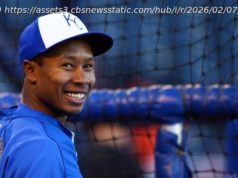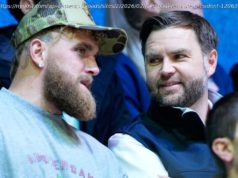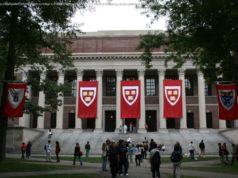There was no coach whom I covered before or since that afforded me the trust and the access that George Irvine did.
There was no coach whom I covered before or since that afforded me the trust and the access that George Irvine did. It was such a different time.
The news of his death on Tuesday, at age 69 — finally losing his courageous fight against lymphoma — created a flood of emotions and memories.
He was suave. They used to say Doug Collins dressed with casual elegance. I would tell you that Irvine gave him a run for his money in that department. He was 6-foot-6 — a solid, work-a-day player in the ABA before a knee injury ended his playing career — and lean. He wore a Tom Selleck-style mustache — which is why he was dubbed Magnum P. I. by some of the players — and stylish eye glasses.
He had a dry sense of humor and an infectious laugh. Damn, I wish I would have taped or written down some of the stories he told of his days in the ABA. Though many couldn’ t be retold in this forum.
In one of our talks in his office, he confided to me that he had long ago been diagnosed with lupus, and that he wasn’ t sure how long he could continue to coach. He wasn’ t exactly sure the stress of coaching wasn’ t adversely affecting the treatment of the disease.
I begged and begged him to let me write the story. I thought sharing his battle could help others, especially other men who were dealing with what was generally considered a disease that impacts women.
He gave it serious thought, even agreed that sharing his story could be helpful to others. But in the end, it was too personal. He didn’ t want anybody to feel sorry for him, especially not his players, didn’ t want anybody to think he was weak or unfit.
Turned out, he kept that disease under control. It was another, more evil one that he couldn’ t beat.
Ex-Pistons coach George Irvine dies at age 69
The guy was calm. That’s really what I remember most about him — he exuded calmness. Even when things were going off the rails, as they were in 2000. But at that juncture of Pistons history, calm was what the franchise needed.
He was hired by Alvin Gentry, who replaced Collins. Gentry was able to calm the waters after Collins’ mercurial tenure ended in the middle of his third season.
Irvine was able to salvage the 1999-2000 season after the team had stopped listening to Gentry.
Do you remember what the Pistons were like that season? They were still wearing teal. Joe Dumars had retired. There were fistfights on the plane (Jerry Stackhouse decking Christian Laettner over a card game) . There were fistfights in the locker room (Stackhouse bludgeoning Jerome Williams after I had mentioned something Williams had said in an interview) .
It was a bit of a traveling circus. And yet, there was enough talent to stay in the playoff hunt, even as the wheels were falling off. This was Grant Hill’s last season in Detroit, the season in which he first injured his ankle. Laettner, Loy Vaught, Terry Mills, Lindsey Hunter, Stackhouse, John Crotty — there were some good, veteran players.
But it was clear the season was slip-sliding away under Gentry and the decision was made to fire him and let Irvine finish the season. Irvine had been a calming presence, especially with Hill, and the team went 14-10 down the stretch and got into the playoffs.
That’s where the fun stopped. Hill’s ankle got progressively worse, eventually breaking in the first playoff game in Miami. The Pistons were swept, Hill departed for Orlando and the start of the Pistons’ championship rebuild began in earnest in 2001, Irvine’s final season.
But there are a couple of things I want to set straight here, things that have been distorted by some revisionist historical accounts.
One, Irvine never ordered Hill to play on that ankle. He didn’ t coerce him in any way. Hill, hounded by the completely inaccurate perception that he was soft, was determined to play. I remember staying at the team hotel in Miami. Trainer Mike Abdenour and physical therapist Arnie Kander set up a make-shift training table under a tent next to the pool.
They worked on Hill for hours. I would sneak in a question here or there and Hill’s determination was maniacal. He was going to play unless the ankle broke in two.
And Irvine, asked repeatedly, before and after, said the decision would be made by Hill and the medical staff. He said he would never do anything to endanger the future of a superstar player like Hill.
There was no incentive for Irvine to push Hill. He had no desire for a long-term coaching contract with the Pistons. And this brings me to the second item I want to clear up.
When Irvine was asked to take over for Gentry, he made it clear he was the interim coach. He made a comment to the effect that he didn’ t want to be the head coach of the Pistons. It came off poorly, but he was being truthful.
He honestly didn’ t see himself being a head coach for the next five years. But he took the job because Dumars was convinced, and Hill seemed to feed the notion, that the only chance the Pistons had of re-signing Hill was if Irvine was still the coach.
Irvine, quite simply, believed that was true and didn’ t want to let down Dumars or owner Bill Davidson.
Irvine managed to pull 32 wins out of the 2000-2001 team, but more important to the franchise’s future, he was recognized what the Pistons had in Ben Wallace. He was the first coach to start Wallace for 80 games, and Wallace produced 13 rebounds a game.
Irvine may only be a small footnote in Pistons history. But the impact he made on the people who played for him, who coached with him and on those who covered him was significant.
George Irvine, above all else, was a good man. Rest in peace, sir.






